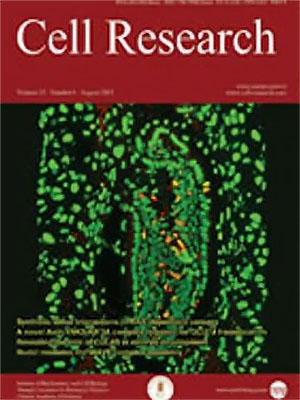
Volume 11, No 2, Jun 2001
ISSN: 1001-0602
EISSN: 1748-7838 2018
impact factor 17.848*
(Clarivate Analytics, 2019)
Volume 11 Issue 2, June 2001: 101-106
ORIGINAL ARTICLES
Bcl-2 over-expression and activation of protein kinase C suppress the Trail-induced apoptosis in Jurkat T cells
GUO Ben Chang, Yong Hua XU*
Institute of Biochemistry and Cell Biology, Shanghai Institutes for Biological Sciences, Chinese Academy of Sciences, 320 Yue-yang Road, Shanghai 200031, China
Correspondence:
Trail, a tumor necrosis factor-related apoptosis-inducing ligand, is a novel potent endogenous activator of the cell death pathway through the activation of cell surface death receptors Trail-R1 and Trail-R2. Its role, like FasL in activation-induced cell death (AICD), has been demonstrated in immune system. However the mechanism of Trail induced apoptosis remains unclear. In this report, the recombinant Trail protein was expressed and purified. The apoptosis-inducing activity and the regulation mechanism of recombinant Trail on Jurkat T cells were explored in vitro. Trypan blue exclusion assay demonstrated that the recombinant Trail protein actively killed Jurkat T cells in a dose-dependent manner. Trail-induced apoptosis in Jurkat T cells were remarkably reduced by Bcl-2 over expression in Bcl-2 gene transfected cells. Treatment with PMA (phorbol 12-myristate 13-acetate), a PKC activator, suppressed Trail-induced apoptosis in Jurkat T cells. The inhibition of apoptosis by PMA was abolished by pretreatment with Bis, a PKC inhibitor. Taken together, it was suggested that Bcl-2 over-expression and PMA activated PKC actively down-regulated the Trail-mediated apoptosis in Jurkat T cell.
FULL TEXT | PDF
Browse 2717


